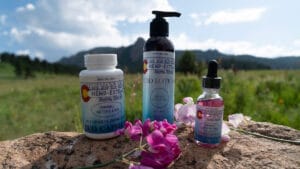With the introduction of hemp into Colorado’s recreational cannabis market, consumers are now able to find 100% THC-free, pure hemp CBD without obtaining a medical marijuana card.
So what is the difference between hemp CBD and the cannabis CBD products you’ve always been able to find at your local dispensary? And what are the best hemp-derived CBD products on the recreational Colorado market?
How Does Hemp CBD Differ From Cannabis CBD?
For many casual consumers, there’s no clear difference between CBD derived from hemp vs cannabis. But for many people, there’s no clear difference between hamsters and gerbils or goldfish and clownfish. So as Steve Irwin said, “Let’s go in for a closer look.”
Cannabinoids in Hemp vs Cannabis
There are many “minor” cannabinoids found in hemp and cannabis plants, including cannabigerol (CBG) and cannabinol (CBN). For now, let’s focus on cannabidiol (CBD) and tetrahydrocannabinol (THC) as those have been the most extensively studied and play the biggest role in many consumer purchases.
The hemp plant is naturally high in cannabidiol (CBD) and low in tetrahydrocannabinol (THC). The 2018 Farm Bill classifies hemp or industrial hemp as Cannabis sativa plants with less than 0.3% THC. And many hemp-derived CBD products often completely eliminate THC from the finished tincture, lotion, or capsule for a pure and federally legal alternative to CBD from cannabis.
On the other hand, the average cannabis product found in Colorado recreational and medical marijuana dispensaries has higher THC levels (typically 15-20% or more) and lower CBD.
That doesn’t mean all recreational cannabis products are high in THC. Many topical creams, patches, edibles, tinctures, and even some extracts and flower greatly limit THC potency, to the point that some consumers won’t notice any psychoactive effects.
CAN’T HAVE ANY THC?
If you are concerned about even the potential for intoxication during your day, or if your job or athletic pursuits may require a drug test, even small amounts of THC can be a deal-breaker. Likewise, if you need a CBD product that’s safe for your pets in case they get into your stash, you need something without any THC (which is toxic for dogs and cats).
Hemp CBD tinctures, lotions, and capsules have satisfied that need for many consumers, offering relief and relaxation with no THC.
How CBD Is Extracted from Hemp
Extraction methods don’t differ too greatly between hemp and cannabis. Some labs use solvents, like butane or ethanol, while others – like Colorado Hemp Extracts – use only natural, pure and safe processes to produce the highest quality products without any unwanted residue.
Likewise, certain companies may completely isolate CBD for the cleanest, purest form of CBD available. Others retain a larger number of cannabinoids and terpenes, capitalizing on the entourage effect that suggests CBD may be more effective alongside other cannabinoids and terpenes. While THC levels remain below 0.3% in these products, the cannabinoid is still present and can build up in your body over time. So if you are worried about passing a drug test at work or the possible intoxicating effects of even low amounts of THC over time, you may prefer CBD isolates.
Read More About CBD Isolate vs CBD Full Spectrum
The different extraction methods can play a role in CBD potency, purity of the finished product, and flavor profile.
Whether you are shopping for hemp CBD, cannabis CBD, or you don’t care which, it’s worth asking your dispensary how they extract their CBD so you know you’re getting only the highest quality and cleanest product on the market.
Hemp CBD vs Cannabis CBD: Regulations & Testing Requirements
CBD products found in Colorado dispensaries have until recently been exclusively derived from the cannabis plant and were required to have at least 0.3% THC. While this meant recreational consumers have had some trouble finding THC-free products, it also meant all recreational CBD products were heavily regulated and thoroughly tested for microbials, pesticides, solvents, and heavy metals.
On the flip side, industrial hemp (with less than 0.3% THC) can be grown legally across most of the U.S. As a result, and because such low THC can be isolated and removed from finished products with relative ease, CBD from hemp has been used in a wide array of nationally-available household products, including oils, creams, shampoos, and nutritional supplements.
Under State and Federal law, the Colorado Department of Agriculture (CDA) tests industrial hemp for total THC using Gas Chromatography (GC). When it comes to processing, sale, and distribution of industrial hemp products, the Colorado Department of Public Health & Environment (CDPHE) has regulatory authority. Any hemp product manufacturer, extractor, processor, and storage facility must register with the CDPHE (and possibly with the CDA). There are additional requirements hemp companies must follow depending on the products they are producing: food safety, labeling, etc.
Unfortunately, despite hemp’s widespread use, hemp CBD products are not required to undergo testing for heavy metals, pesticides, residual solvents, or microbials in the same way as cannabis. While it’s likely this will change in the coming years, for now consumers are forced to rely on hemp manufacturers, extractors, and processors to conduct all of these tests themselves.
Ironically, this means customers searching for a federally legal, THC-free hemp product have to be even more careful than those consumers purchasing federally prohibited, high THC recreational cannabis.
At Karing Kind, we carefully vet all of the products we sell, whether we produce them in our own lab or purchase them from a trusted local third party.
“If we wouldn’t give it to our family, we won’t sell it to our customers.”
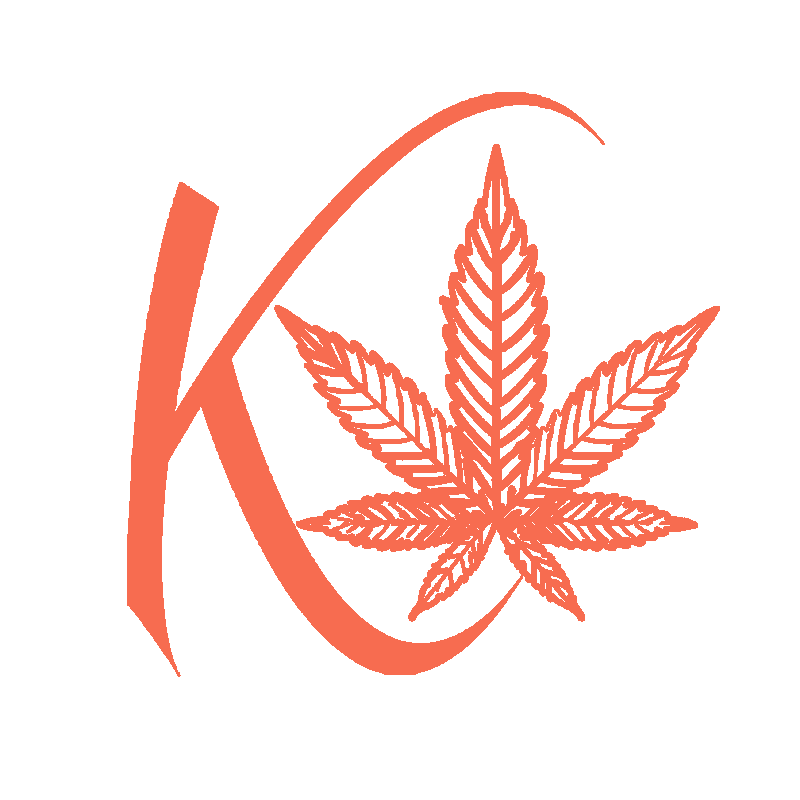
Dylan Donaldson
Founder & Owner | Karing Kind
Finding Hemp CBD in Colorado
Until recently, hemp CBD couldn’t be sold at recreational cannabis shops. And while the city of Boulder is changing that rule, for many years CBD consumers in Boulder were left with three options:
- Buy cannabis-derived CBD at a recreational dispensary, knowing the products are extensively tested but you’re also getting some THC.
- Get a medical marijuana card for access to carefully tested 0mg THC products.
- Buy hemp CBD at convenience stores or gas stations and hope that the manufacturers took it on themselves to submit their products for additional testing.
While all three are legitimate options, many discerning consumers are understandably hesitant to purchase from unknown brands or retailers looking to capitalize on the trendy CBD business. Some CBD companies source their product from outside of the U.S. where grow and extraction methods aren’t as carefully monitored as they are in Colorado.
Thankfully, the introduction of hemp CBD products to recreational dispensaries means you can now find the products you need from a dispensary you already know and trust to prioritize your wellbeing. At Karing Kind, we hold all of our business partners to the highest standards for quality and consistency. And we’re excited to bring in Colorado Hemp Extracts, a local CBD company that shares our commitment to consumer safety and that grows, extracts, and packages all of its products right here in Colorado.
Read About Our Commitment to Pure Cannabis & Consumer Safety
Whether you get your CBD by smoking flower, vaping CO2 oil, applying a topical cream, or eating an edible, you should be able to trust that you’re getting a pure, consistent product every time. And because hemp products aren’t taxed at the same rate as cannabis, you can purchase trustworthy hemp CBD from a Boulder dispensary without having to pay a premium.

Colorado Hemp Extracts: Pure CBD (100% THC Free)
With more than 10 years of industry experience, Colorado Hemp Extracts is proud to offer the highest quality CBD products on the market today.
Every batch starts with 100% Colorado-grown U.S. hemp that follows all FDA agriculture regulations so customers can trust every dose is pure, consistent, and safe to consume. Using natural, proven extraction methods, CO Hemp Extracts ensures each product achieves the highest level of purity and quality.
You can now purchase Colorado Hemp Extracts pure CBD lotions, tinctures, capsules, and pet care drops from our recreational dispensary in North Boulder. And because their products are made from pure hemp (100% THC-free), you can order delivery from anywhere in the U.S.
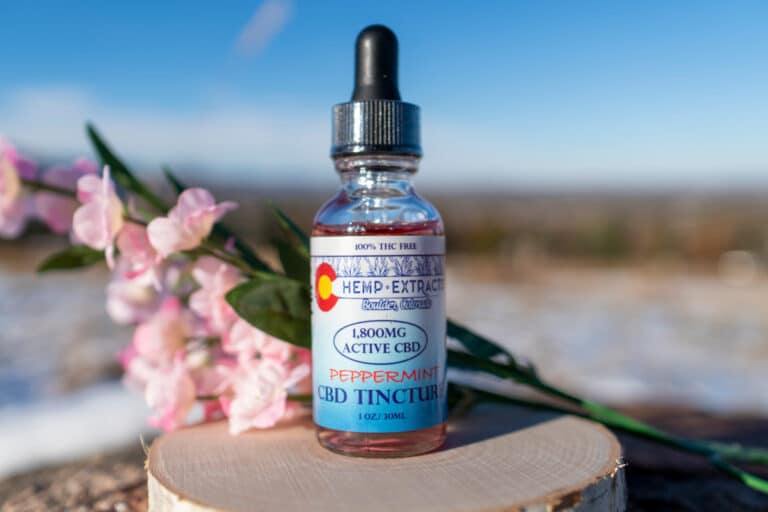
Natural & Peppermint Hemp CBD Tinctures
With the introduction of hemp into Colorado’s recreational cannabis market, consumers are now able to find 100% THC-free, pure hemp CBD without obtaining a medical marijuana card.
So what is the difference between hemp CBD and the cannabis CBD products you’ve always been able to find at your local dispensary? And what are the best hemp-derived CBD products on the recreational Colorado market?
Order Delivery from CO Hemp Extracts
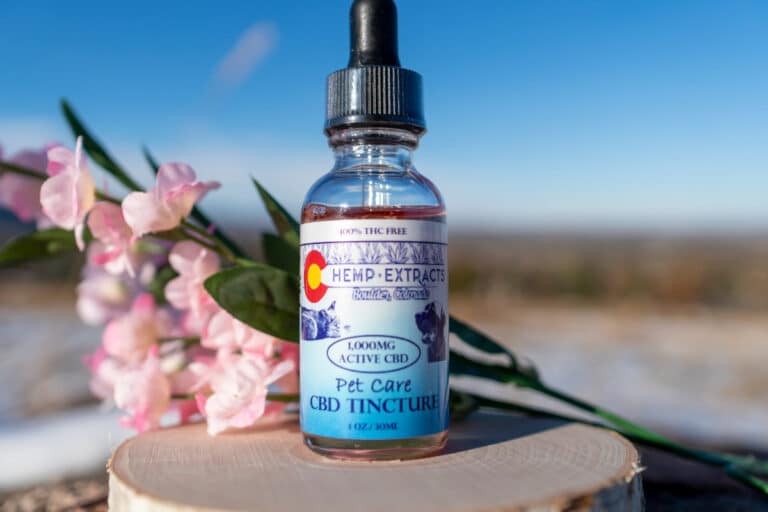
Hemp CBD Pet Care Drops
Now your pets can experience the same benefits of CBD that you do! Hemp CBD Pet Care Drops from CO Hemp Extracts work well with all sizes of dogs and cats, working naturally with their endocannabinoid system to help support normal health.
Easily dosed (though you should always speak with a veterinarian before adding CBD to your pet care regimen), try adding the drops to your pets food or administering orally. Increase or decrease serving size as needed.
Each bottle offers 1,000mg of CBD. All Colorado Hemp Extracts products are 100% THC-free and lab tested for quality and consistency.
Order Delivery from CO Hemp Extracts
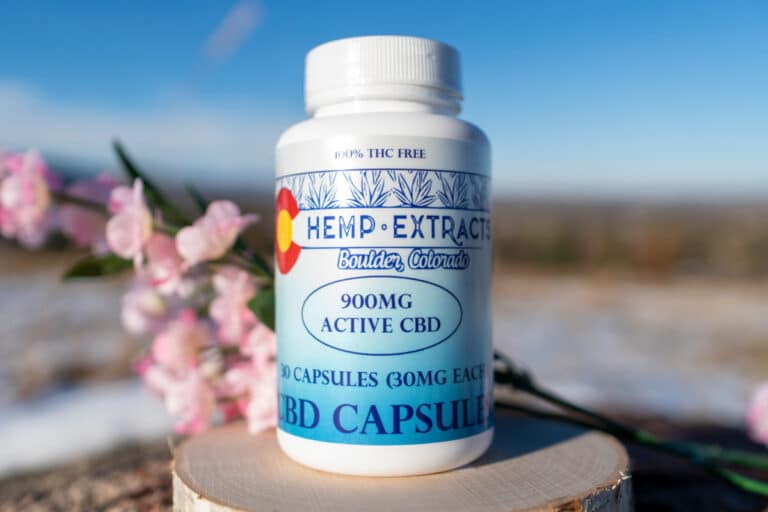
Hemp CBD Capsules
For CBD users looking for consistency and convenience, Hemp CBD Capsules are the product for you! CO Hemp Extracts Capsules are 100% THC-free and contain pure CBD extract for a pure and tasteless dose you can rely on. Each gelatin capsule breaks down in the intestinal tract for optimal absorption.
Each bottle offers 900mg of CBD. Recommended Dosage: 1-2 capsules daily.
Order Delivery from CO Hemp Extracts
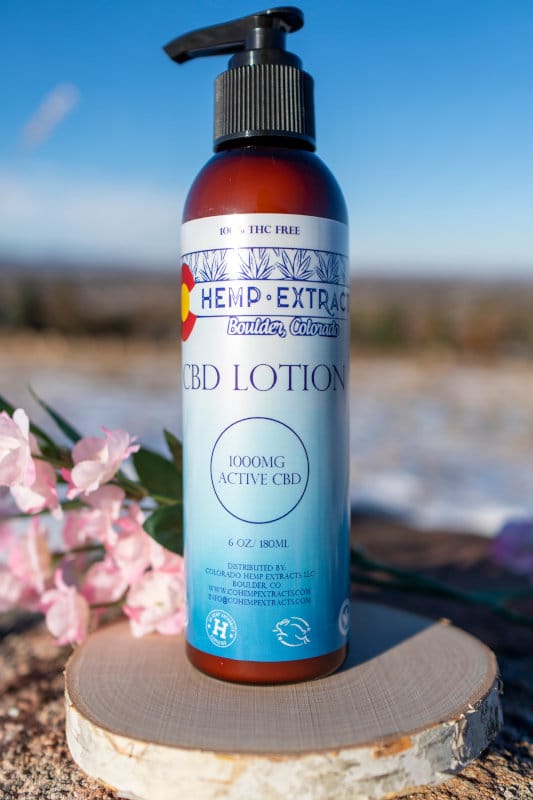
Hemp CBD Lotion
Colorado Hemp Extracts CBD Lotion is specially formulated with 1000mg of active CBD hemp extract and other organic ingredients for topical use. The mild, calming smell makes this soothing lotion suitable for men and women!
We do NOT test on animals and only use NON GMO ingredients!
Suggested Dosage: For external use only. Great for athletes and massage treatments. Apply liberally to the skin (small or large area applications) as needed before or after physical activity.
Order Delivery from CO Hemp Extracts
Find the Perfect CBD
Once associated primarily with medical marijuana, CBD has carved a place in the recreational cannabis industry due to its many benefits. For many consumers, hemp CBD offers the 100% THC-free solution they’ve been craving for relaxation and relief without the psychoactive effects of many recreational cannabis products.
From our family to yours, we put lots of love and careful attention in each item. Come see how Karing Kind and Colorado Hemp Extracts continue to provide the best products and service to our loyal customers!
Learn more about our best-in-Boulder selection of CBD products or browse our full CBD menu:



